Yes, I know the most recent iteration of the Scooby-Doo cartoon is supposed to be very good.
(SPOILERS ahead, most likely.)
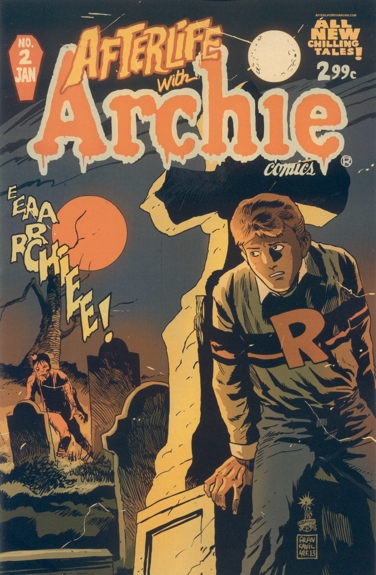
A long time ago, a particular image fixed in my mind. It was inspired by the various reimaginings of older, innocent comics in the light of deconstructive reconsideration, like The Dark Knight Returns or Miracleman, with a bit of Alan Moore and Don Simpson’s “In Pictopia” thrown in. It was an image from a comic story that will never happen, not within our lifetimes, at least not officially, unless with some changing of names or just straight-up Air Pirates-ing it.
The basic set-up is that Goofy is visiting Mickey Mouse at his home. At some point, Mickey leaves the room, and Goofy follows. The panel I picture in my head is of Goofy glancing down at Pluto, who is dozing near the fireplace. There is some nearly-unreadable expression in Goofy’s face as he gazes upon his fellow dog. Is it pity for a distant cousin, separated by evolution, like a Homo sapiens sapiens looking at a chimpanzee in a cage? Is it disgust at another canine, one who settles for a life of sloth and pampering, not struggling to better himself as Goofy did? Is it sadness for a dog whose options in life have brought him to this low position, unable to escape? Guilt that he, Goofy, was able to advance while Pluto remained simply what he was?
At any rate, it’s basically picturing a “serious” version of the old question of “if Goofy is a dog, and Pluto is a dog, then why…?” by making Goofy himself seemingly aware of the discrepancy between his own dogness and Pluto’s dogness. Yes, “dogness.” I tried “caninity,” which is actually a word, but I liked “dogness” better.
Broader still, it’s a layering of depth and meaning far heavier than the subject can realistically support. Does anyone really need a serious in-universe examination of what exactly the difference is between Goofy and Pluto, and what that difference means to both of them, personally? I can see gags based around Goofy and Pluto deciding to trade places, and the difficulties that arise there, and in fact I wouldn’t be surprised if there was such a cartoon at some point.
So anyway, Afterlife with Archie #2. Taking the Archie universe, throwing it into a horror/zombie genre story, and just plain ol’ going for it. It’s a mostly serious take on a group of characters designed specifically to generate gags based on their personality differences, so there is that small measure of reexamination of the Archie gang and how they relate to each other. Sure, there’s the darkly ironic gag of Jughead, the character defined primarily by his love of eating, becoming the first zombie in the story. But the other happy, upbeat stories that usually abound in the their world are replaced with darker and / or more complicated issues: Betty and Veronica’s usually friendly adversarial relationship is suddenly a lot less friendly. Moose thinks maybe the zombified Jughead is “juicing.” There’s the reimagining of Sabrina’s aunts…what if they were scary witches? There’s the oddly incestuous subtext between Cheryl and her brother Jason. There’s the closeted lesbian couple who aren’t nearly as comfortable about coming out as prominent gay Archie character Kevin Keller.
And, unlike my Goofy ‘n’ Pluto thing, and against all odds, this works. If you told me a year ago, “hey, what if they the Archie characters and put ’em in a zombie story,” I would have thought that was a terrible idea. Even when this series was solicited a few months ago, I thought…well, the creative team of Roberto Aguirre-Sacasa and Francesco Francavilla inspired some confidence, but even still I thought this was some chance to take. But going all out as they did, making the zombie genre a framework on which to build an alternate Archie universe where not everything works out in the end, not every relationship problem is solved with a pratfall, a laugh, or a humorous comeuppance, and where tragedy is not just a mild plot bump in the middle of an eight-page story…that’s what makes the project work as well as it does.
I probably really shouldn’t be racking this on the kids’ shelf.
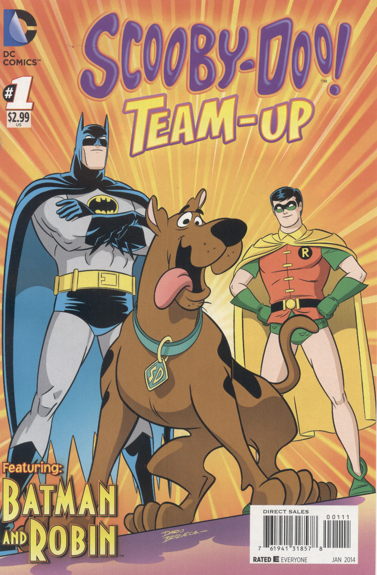
Almost the exact opposite of Afterlife with Archie is this comic, reviving the Batman/Scooby-Doo team from those decades-old episodes (and, okay, a relatively more recent Batman: Brave and the Bold installment). No darkness, no grittiness, no ironic reconsiderations of milieu or character, no snark, no winking at how silly this all is (aside from a knowing gag or two kicking at the fourth wall a bit). You just get delivery on the promise of the cover, with Batman and Robin teaming up with Scooby and the gang to solve some crimes and catch some bad guys. It’s all light and fun and certainly a much-missed version of Batman. “Dark Avenger of the Night” is fine an’ all, but sometimes it’s okay to turn on the lights and let Batman see what he’s doing for once.
Also, for not having seen an episode of Scooby-Doo in years (aside from the aforementioned Brave and the Bold cartoon), it’s so ingrained in my head that I could easily hear all the gang’s voices as I read this comic. Nice nostalgic flashback for an old coot like me, and probably fun for the young folk, too.
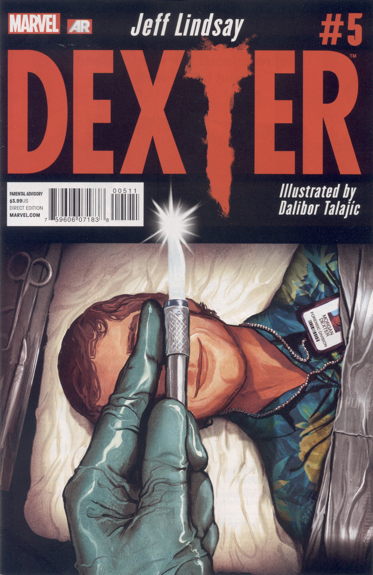
This series is over, with a follow-up mini-series coming early next year, and, well…it was okay, I suppose. Felt like it was maybe an issue too long, the art felt a little uneven at times, but overall, I enjoyed it. It fills its function as side stories to the books, and specifically the books, as the comics are written by Dexter’s creator, novelist Jeff Lindsay. That’s the primary selling point; it’s that these are written by Lindsay is the reason I’m reading them.
I will note that this cover, while still obscuring the face of the title character to avoid confusion with the television show version, comes the closest thus far to making Dexter look like his portrayal by actor Michael C. Hall. Not complaining or criticizing, just acknowledging the difficulty involved in managing this particular license, where the literary version of the character is at a disadvantage when translated to a visual medium, when another, slightly altered but much more in the public awareness, version preexists.
And like I said, next year, “Dexter Down Under.” “You call that a knife? This is a knife!” (Dexter unfurls carrying case of terrifying blades in all sizes.)
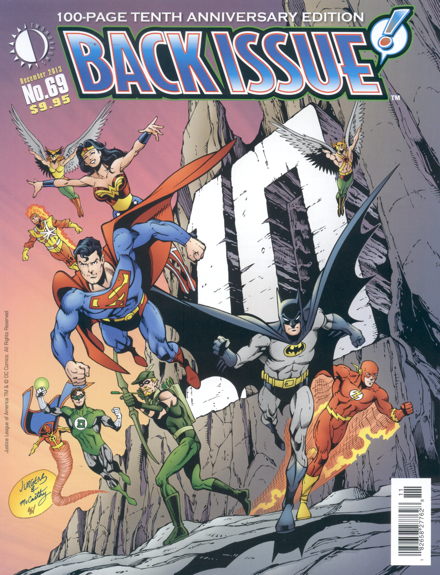
It takes a lot to get me to buy any of the comics review/interview/history magazines nowadays. I used to buy a lot of them, back when I had more time to read them, and before I started writing a comics weblog, which I’m sure is only a coincidence. Today, I’ll pick one up if the overall subject matter interests me (like Back Issue‘s special treasury edition), or, like this week, if the mag covers all those extra-sized anniversary issues I so enjoyed when I was a kid. I’ve written about anniversary issues here way back when, not long after I started this site; Flash #300 and Detective Comics #500 are two favorites that are in fact discussed in this very magazine, and it’s nice to get a little behind-the-scenes information on them after all these years.
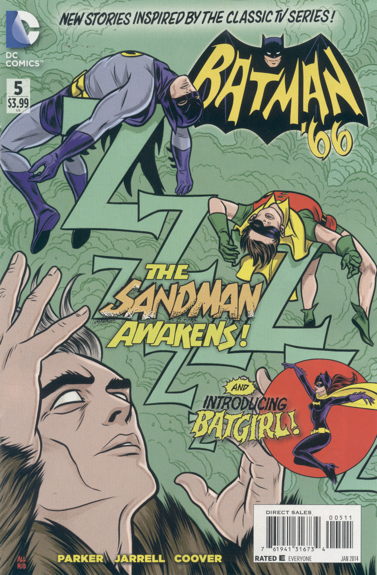
She’s not on the cover, but this issue features my favorite Catwoman, along with a cute musical in-joke, in a story drawn by Colleen Coover. …Remember when people thought Adam West Batman was something to be ashamed of? How wrong they were.


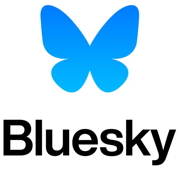




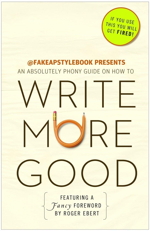
There was a run of “Mickey Mouse” newspaper strips in which Mickey learns ventriloquism–the comic strip version of ventriloquism, in which the voice is literally projected to another place (I have long wondered–did all those comics writers really think that this was how ventriloquism worked, or did they merely find it a useful plot device and counted on the ignorance of their readers? But that is beside the point.) In one strip Mickey is out walking Pluto when he meets Goofy. As a joke, Mickey makes his voice come out of Pluto’s mouth, but then he is nonplussed to find that Goofy just takes it in stride. An argument results, something along these lines:
Mickey: For gosh sakes! You don’t think a talking dog is unusual?
Goofy: I don’t know. I never thought about it. Seems normal, I guess.
Understandably, the point is not persued past that.
Oh, and pardon me but I must pick a nit: An anniversary issue is not one whose number ends in double zeroes (or, if it is, it is so only accidentally and incidentally). The root of “anniversary” is “annus” (no sniggering, please), meaning “year.” An anniversary issue is one published a year, or a certain number of years, since the first issue. Thus, for example: FANTASTIC FOUR #1 was dated November 1961; this makes #92 (November 1969) the 8th anniversary issue and #104 (November 1970) the 9th anniversary issue; #100 (July 1970) was in no sense an anniversary.
The most recent Mickey Mouse short has Pluto getting hurt and wearing one of those satellite looking collars, so Goofy has to take his place in the dog show.
Lawrence – Yes, I know…I pretty much cover that in my old Detective Comics #500 post I linked to.
Kid Nicky – I knew it!
Sadly, there are still people who shun the Adam West Batman. I always feel so sad for these lost souls, shuffling through life with such a basic misunderstanding of one of the very foundations of the universe itself.
Mr. Fechtenberger, you must be tons of fun at parties.
This is something that comes up often enough to have become a pet peeve. I have, for example, seen more than one reference to the 700th Anniversary issue of BATMAN. The English language is not enriched by allowing that to become the norm.
I’d personally like to thank Lawrence for his forthright and honest defense of the integrity of the English language.
However, you misspelled anus.
To further add to the Goofy / Pluto confusion, there’s the controversy of hunting for wildlife in the Duckberg Universe. What do citizens of Duckberg hunt anyways? DUCKS, of course! And not just normal anthropomorphic realistic ducks, but TALKING ducks as well.
http://congressofreality.wordpress.com/2009/09/10/fethry-duck-in-the-retriever/
Lawrence – I don’t know that anyone’s using the “100th Anniversary!” phrasing for hundredth issues any more, or arguing for it to come back. I think that particular colloquialism is simply a general and simple reference by fans and collectors to those particular types of special issues, one that has been in use for quite a while, and is not likely to be supplanted any time soon. “Centennial Comics,” or for breaks at 50, “Semicentennial Comics” may be more accurate, but not quite as…emotionally satisfying, I guess?
I believe most people generally understand that “anniversary” is not, strictly speaking, being used properly in some of these contexts. Just like I’m pretty sure most people understand “the Bronze Age of Comics” doesn’t mean comic publishers starting smelting their books. It’s just marketing.
Archie is still awesome. Nailed it.
https://www.progressiveruin.com/2013/01/07/the-futures-uncertain/#comment-184390
So Lawrence either never had a high school girlfriend, or he lost her after he explained to her how the three-month-anniversary she was going on and on about wasn’t really a thing…!
As someone who has not read an Archie comic printed after about 1980, I must ask: does he still drive that red broken down Model T? Back in the ye olden tymes, his car was the source of jokes, but now that car would be ninety to a hundred years old and would stretch the joke too far. Does he have a new “jalopy?” (Please oh please tell me whatever he drives it’s now called a “hoopty.” Oh please let that be true…)